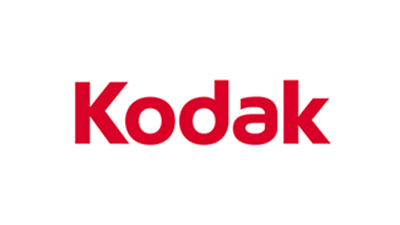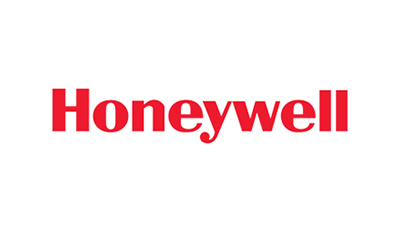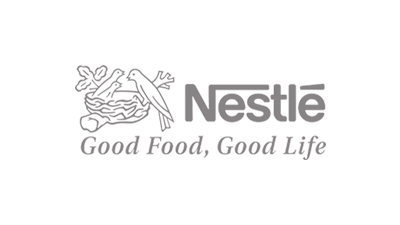
-
Report ID 138278 -
Published Date Augest 2024 -
Delivery Format PDF/PPT/Word -
Editor's Rating
-
Report Details
Report Overview
The Global Digital Marketing Market size is expected to be worth around USD 1,353 Million by 2033, from USD 420 Million in 2023, growing at a CAGR of 12.4% during the forecast period from 2024 to 2033.
Digital marketing encompasses a broad spectrum of strategies and techniques that leverage online platforms to promote products and services. This field incorporates various methods including search engine optimization (SEO), social media marketing, email marketing, content marketing, and more, aimed at reaching consumers through digital channels. The effectiveness of digital marketing lies in its ability to target specific audiences with precision and to measure the impact of campaigns in real-time.
The global digital marketing market is experiencing substantial growth, driven by the increasing penetration of internet services and the widespread adoption of digital devices. Businesses are shifting their focus from traditional advertising methods to digital strategies to capture the growing number of online consumers. The market is also propelled by innovations in artificial intelligence and analytics, which enhance the personalization and effectiveness of digital marketing campaigns.

Despite the growth, the digital marketing sector faces challenges. Data privacy concerns and increasing regulations, such as GDPR in Europe, require marketers to navigate complex legal frameworks, potentially stifling creativity and reach. Moreover, the high competition in digital spaces means businesses must continually innovate to capture consumer attention, necessitating constant investment in new technologies and strategies.
Opportunities in digital marketing are abundant, particularly in the integration of emerging technologies like augmented reality (AR) and virtual reality (VR), which can create more immersive advertising experiences. The growing importance of social media platforms also opens new avenues for marketers to engage with audiences in real-time. As businesses increasingly recognize the value of data-driven marketing, the demand for skilled professionals in this field is set to rise, indicating a robust future for the market.
In the dynamic landscape of digital marketing, search engines undeniably drive significant traffic to websites, with an overwhelming 93% of website traffic originating from this channel. Google dominates this arena, holding a commanding 91% market share, underscoring its pivotal role in digital marketing strategies. Consumer behavior studies reveal that 53% of US consumers utilize search engines to research products before making purchase decisions, highlighting the critical influence of search engine visibility on consumer behavior.
The importance of ranking on the first page of search results is evident, as 75% of users do not venture beyond it, demonstrating the crucial need for effective Search Engine Optimization (SEO). A significant 68% of online experiences begin with a search engine, further emphasizing its role as the starting point in the consumer journey. Interestingly, 63% of all shopping initiations occur online, regardless of the final purchase location, indicating a hybrid consumer behavior that blends online research and offline purchases.
SEO strategies are vital for visibility, as evidenced by 60% of the pages in Google’s top 10 results being at least three years old. This longevity in ranking positions highlights the enduring value of well-optimized content. The investment in SEO is substantial, with 48% of businesses spending between $2,500 and $7,500 per month to enhance their search engine rankings. The value of securing the top position in search engine results pages (SERPs) is quantified by an estimated click-through rate of 39% for the #1 position.
Digital advertising trends also reflect significant investments, with more than 50% of company marketing budgets directed towards paid media and new technologies. Notably, mobile advertising is expected to represent 70% of total advertising spend by 2028, indicating a shift towards mobile-first strategies. Content marketing remains a potent tool for B2B marketers, with 84% achieving brand awareness through their content strategies. Blogs, as utilized by 76% of marketers, stand out as the preferred medium for content distribution, underscoring their importance in engagement and lead generation.
Key Takeaways
- The Global Digital Marketing Market is projected to grow from USD 420 Million in 2023 to approximately USD 1,353 Million by 2033. This represents a Compound Annual Growth Rate (CAGR) of 12.4% from 2024 to 2033.
- In 2023, the Social Media Marketing segment captured a significant portion of the digital marketing market, holding over 31% of the market share.
- The Retail sector also demonstrated strong market dominance within the digital marketing landscape in 2023, securing over 25% of the market share.
- North America led the digital marketing market in 2023, comprising more than 37% of the global market, with revenues reaching USD 155.4 million.
Digital Channel Analysis
In 2023, the Social Media Marketing segment held a dominant market position in the Digital Marketing Market, capturing more than a 31% share. This leading status can be attributed to several pivotal factors. Primarily, the vast and growing global user base of platforms such as Facebook, Instagram, Twitter, and LinkedIn has made social media an essential touchpoint for brands aiming to reach a diverse audience effectively.
The interactive nature of these platforms allows for direct engagement with consumers, fostering a two-way communication channel that enhances customer relationship management and brand loyalty. Moreover, the integration of advanced analytics tools in social media platforms enables marketers to gain deep insights into consumer behavior and preferences.
These tools help in crafting targeted advertising strategies that are highly personalized, increasing the effectiveness of marketing campaigns. The ability to measure the impact of campaigns in real-time and adjust them for maximum engagement and conversion further strengthens the appeal of social media marketing among businesses.
Additionally, social media marketing is cost-effective compared to traditional media channels. Even with a modest budget, businesses can achieve significant visibility and engagement, making it particularly advantageous for small to medium-sized enterprises. The viral potential of content on these platforms also presents opportunities for exponential reach, enhancing brand visibility without proportional increases in investment. These strategic advantages underline why the Social Media Marketing segment continues to lead in the Digital Marketing Market.
Industry Vertical Analysis
In 2023, the Retail segment held a dominant market position in the Digital Marketing Market, capturing more than a 25% share. This prominence is largely due to the digital transformation that the retail industry has undergone, particularly in adapting to e-commerce and online shopping trends.
Retailers have increasingly relied on digital marketing strategies to attract, engage, and retain customers in a highly competitive market. The use of personalized marketing through data analytics has enabled retailers to offer tailored experiences to customers, enhancing satisfaction and loyalty.
Digital marketing tools such as email marketing, SEO, and content marketing are vital for retailers seeking to drive traffic both to online stores and physical outlets. These tools help in optimizing the customer journey by providing timely and relevant interactions, from the initial search to the final purchase. Social media platforms also play a crucial role, offering a space for retailers to build their brand presence and interact directly with consumers, which is critical for customer acquisition and retention.
Additionally, the integration of technologies like augmented reality (AR) and virtual reality (VR) in digital marketing strategies has provided the retail sector with innovative ways to engage consumers. For example, AR allows customers to visualize products in their own space before buying, enhancing the decision-making process. Such advanced approaches not only improve the shopping experience but also position the retail sector as a leader in adopting cutting-edge digital marketing practices to meet consumer demands effectively.

Key Market Segments
By Digital Channel
- Social Media Marketing
- Search Engine Optimization (SEO)
- Search Engine Marketing (SEM)
- Content Marketing
- Email Marketing
- Others
By Industry Vertical
- Retail
- Healthcare
- BFSI
- IT and Telecom
- Media and Entertainment
- Education
- Automotive
- Other Industry Verticals
Driver
Integration of AI Technologies
The integration of Artificial Intelligence (AI) technologies is a major driver of growth in the digital marketing market. AI applications, such as machine learning, chatbots, and predictive analytics, are transforming marketing strategies by enhancing personalization and improving customer engagement.
AI tools enable marketers to analyze large volumes of data quickly, predict consumer behavior, and deliver tailored content to the right audience at the optimal time. This increases the efficiency and effectiveness of marketing campaigns, leading to higher conversion rates and customer retention. As AI technology continues to evolve, its adoption in digital marketing strategies is expected to increase, significantly driving market growth.
Restraint
Stringent Regulatory Compliance
One of the primary restraints in the digital marketing market is the stringent regulatory landscape regarding data privacy and consumer protection. Governments worldwide are implementing strict regulations to ensure the privacy and security of consumer data, which impacts how companies collect, store, and utilize customer information.
Compliance with these regulations requires significant resources, and non-compliance can lead to hefty fines and reputational damage. These factors make regulatory compliance a major hurdle for companies operating within the digital marketing space, potentially stifling innovation and limiting the scope of marketing strategies.
Opportunity
Expansion of E-commerce
The ongoing expansion of e-commerce provides a substantial opportunity for the digital marketing market. With increasing consumer preference for online shopping, businesses are investing heavily in digital marketing to attract and retain customers.
Digital platforms offer various tools for targeted advertising, customer engagement, and performance tracking, which are essential for capitalizing on the growing e-commerce trend. Furthermore, the rise in mobile commerce enhances this opportunity, as more consumers use smartphones for shopping, creating a ripe environment for mobile-specific marketing strategies.
Challenge
Keeping Pace with Rapid Technological Changes
A significant challenge facing the digital marketing industry is the rapid pace of technological advancements. Marketers must continuously update their skills and strategies to keep up with new technologies and platforms that reshape the marketing landscape.
This includes adapting to changes in AI, evolving social media platforms, and emerging digital channels. The necessity for ongoing education and adaptation can strain resources and require constant investment in new technologies and training. Staying current with these changes is crucial for companies to remain competitive in a fast-evolving market.
Key Factors Influencing Market Growth
The growth of the digital marketing market is propelled by several key factors that reflect the evolving technological landscape and shifting consumer behaviors:
- Technological Advancements in AI and Machine Learning: Artificial intelligence (AI) and machine learning are increasingly integral to digital marketing, enhancing personalization and efficiency in consumer interactions. These technologies allow for more targeted marketing strategies and real-time data analysis, significantly influencing consumer engagement and campaign outcomes.
- Voice Search Optimization: With the rising use of voice-activated devices, optimizing content for voice search has become crucial. This trend requires adapting keywords and content to fit natural language queries, ensuring brands remain discoverable through new forms of search.
- Video Content Dominance: Video continues to be a dominant form of content across digital platforms. The engagement with short-form video content, particularly on platforms like TikTok and Instagram, underscores the need for brands to invest in versatile video strategies that cater to a diverse audience.
- Increased Focus on Sustainability and Social Responsibility: Consumers are increasingly drawn to brands that demonstrate commitment to sustainability and ethical practices. This shift compels companies to integrate green marketing and social responsibility into their strategies, influencing both brand perception and consumer loyalty.
- Enhanced Data Privacy Regulations: As data privacy laws such as GDPR and CCPA become more stringent, companies are required to prioritize data security and transparency. Compliance with these regulations not only protects businesses from legal consequences but also builds trust with consumers.
- Growing Popularity of Augmented Reality (AR) and Virtual Reality (VR): AR and VR technologies are transforming digital marketing by offering immersive experiences that allow consumers to visualize products in their own environments before purchasing. This technology enhances interactive marketing and can significantly boost consumer engagement.
Regional Analysis
In 2023, North America held a dominant market position in the digital marketing market, capturing more than a 37% share with revenues amounting to USD 155.4 million. This leadership can be attributed to several core factors. Primarily, the region’s advanced technological infrastructure and the high adoption rate of digital technologies across businesses of all sizes have fostered a conducive environment for digital marketing growth.
Moreover, North America is home to some of the world’s largest technology companies, including giants like Google, Facebook, and Microsoft, which have continuously innovated and pushed the boundaries of digital marketing with new platforms and tools. The emphasis on personalization and targeted marketing, driven by the widespread use of data analytics, has also played a crucial role.
In North America, companies are increasingly leveraging big data to tailor their marketing efforts to individual consumer behaviors and preferences, thus increasing the effectiveness of their campaigns. Additionally, the region shows a high penetration of mobile devices, providing marketers with further opportunities to reach consumers through mobile marketing.
Another significant contributor to the market’s growth in this region is the presence of a mature e-commerce sector, which has integrated digital marketing into its core operations. E-commerce giants and startups alike rely heavily on digital advertising, SEO, and content marketing to attract and retain customers. This integration has driven considerable investment in digital marketing from the retail sector, further propelling the market’s expansion.

Key Regions and Countries covered іn thе rероrt:
- North America
- US
- Canada
- Mexico
- Europe
- Germany
- UK
- France
- Italy
- Russia
- Spain
- Rest of Europe
- Asia Pacific
- China
- Japan
- South Korea
- India
- Rest of Asia-Pacific
- South America
- Brazil
- Argentina
- Rest of South America
- Middle East & Africa
- GCC
- South Africa
- Israel
- Rest of MEA
Key Players Analysis
In the dynamic field of digital marketing, several key players are shaping the market through strategic acquisitions, innovative product launches, and mergers. Among these, IBM Corporation, Dentsu Group Inc., and WebFX stand out due to their significant market impact and strategic initiatives.
IBM Corporation has consistently expanded its digital marketing services by focusing on AI and cloud-based solutions. In 2023, IBM acquired a smaller marketing software company to enhance its data analytics capabilities, allowing clients to gain deeper insights into consumer behavior and improve their digital advertising strategies.
Dentsu Group Inc., a global leader based in Japan, has made headlines with its aggressive expansion strategy, launching a new suite of tools designed to integrate social media marketing with user engagement analytics. This launch aims to provide marketers with a more holistic view of their campaigns’ effectiveness across various digital platforms.
WebFX, known for its results-driven digital marketing solutions, recently merged with a renowned content marketing firm. This merger is aimed at enhancing their SEO and content marketing services, providing clients with comprehensive strategies that span from search engine optimization to targeted content creation to leverage both organic and paid channels effectively.
Top Market Leaders
- IBM Corporation
- Dentsu Group Inc.
- WebFX
- Disruptive Advertising
- Thrive Internet Marketing Agency
- TopSpot Internet Marketing
- PB&J Promotions LLC
- 97th Floor
- Cuker
- Ignite Visibility
- Location3 Media
- Split Reef LLC
- Webimax
- Other Key Players
Recent Developments
- March 2024: Dentsu Group launched a new digital marketing platform that integrates AI to improve campaign targeting and personalization. This platform aims to help clients better understand customer behavior and optimize their marketing strategies accordingly.
- July 2023: WebFX expanded its services by introducing new AI-driven marketing analytics tools designed to provide deeper insights into customer data and improve the effectiveness of digital marketing campaigns.
- October 2023: IBM announced advancements in its AI-powered digital marketing solutions, particularly focusing on Watson Marketing, Watson Advertising, and Watson Customer Experience Analytics. These tools help businesses leverage AI to optimize marketing campaigns, enhance customer personalization, and improve overall customer experience.
- May 2023: TopSpot Internet Marketing introduced a new platform for integrating voice search optimization into their clients’ digital marketing strategies, acknowledging the growing importance of voice search in online consumer behavior.
Report Scope
Report Features Description Market Value (2023) USD 420 Mn Forecast Revenue (2033) USD 1,353 Mn CAGR (2024-2033) 12.4% Base Year for Estimation 2023 Historic Period 2018-2022 Forecast Period 2024-2033 Report Coverage Revenue Forecast, Market Dynamics, COVID-19 Impact, Competitive Landscape, Recent Developments Segments Covered By Digital Channel (Social Media Marketing, Search Engine Optimization (SEO), Search Engine Marketing (SEM), Content Marketing, Email Marketing, Others), By Industry Vertical (Retail, Healthcare, BFSI, IT and Telecom, Media and Entertainment, Education, Automotive, Other Industry Verticals) Regional Analysis North America – US, Canada; Europe – Germany, France, The UK, Spain, Italy, Russia, Netherlands, Rest of Europe; Asia Pacific – China, Japan, South Korea, India, New Zealand, Singapore, Thailand, Vietnam, Rest of APAC; Latin America – Brazil, Mexico, Rest of Latin America; Middle East & Africa – South Africa, Saudi Arabia, UAE, Rest of MEA Competitive Landscape IBM Corporation, Dentsu Group Inc., WebFX, Disruptive Advertising, Thrive Internet Marketing Agency, TopSpot Internet Marketing, PB&J Promotions LLC, 97th Floor, Cuker, Ignite Visibility, Location3 Media, Split Reef LLC, Webimax, Other Key Players Customization Scope Customization for segments, region/country-level will be provided. Moreover, additional customization can be done based on the requirements. Purchase Options We have three licenses to opt for Single User License, Multi-User License (Up to 5 Users), Corporate Use License (Unlimited User and Printable PDF) -
Table Of Content
- 1. Executive Summary
- 1.1. Definition
- 1.2. Taxonomy
- 1.3. Research Scope
- 1.4. Key Analysis
- 1.5. Key Findings by Major Segments
- 1.6. Top strategies by Major Players
- 2. Global Digital Marketing Market Overview
- 2.1. Digital Marketing Market Dynamics
- 2.1.1. Drivers
- 2.1.2. Opportunities
- 2.1.3. Restraints
- 2.1.4. Challenges
- 2.2. Macro-economic Factors
- 2.3. Regulatory Framework
- 2.4. Market Investment Feasibility Index
- 2.5. PEST Analysis
- 2.6. PORTER’S Five Force Analysis
- 2.7. Drivers & Restraints Impact Analysis
- 2.8. Industry Chain Analysis
- 2.9. Cost Structure Analysis
- 2.10. Marketing Strategy
- 2.11. Russia-Ukraine War Impact Analysis
- 2.12. Opportunity Map Analysis
- 2.13. Market Competition Scenario Analysis
- 2.14. Product Life Cycle Analysis
- 2.15. Opportunity Orbits
- 2.16. Manufacturer Intensity Map
- 2.17. Major Companies sales by Value & Volume
- 2.1. Digital Marketing Market Dynamics
- 3. Global Digital Marketing Market Analysis, Opportunity and Forecast, 2016-2032
- 3.1. Global Digital Marketing Market Analysis, 2016-2021
- 3.2. Global Digital Marketing Market Opportunity and Forecast, 2023-2032
- 3.3. Global Digital Marketing Market Analysis, Opportunity and Forecast, By Digital Channel, 2016-2032
- 3.3.1. Global Digital Marketing Market Analysis by Digital Channel: Introduction
- 3.3.2. Market Size Absolute $ Opportunity Analysis and Forecast, By Digital Channel, 2016-2032
- 3.3.3. Social Media Marketing
- 3.3.4. Search Engine Optimization (SEO)
- 3.3.5. Search Engine Marketing (SEM)
- 3.3.6. Content Marketing
- 3.3.7. Email Marketing
- 3.3.8. Others
- 3.4. Global Digital Marketing Market Analysis, Opportunity and Forecast, By Industry Vertical, 2016-2032
- 3.4.1. Global Digital Marketing Market Analysis by Industry Vertical: Introduction
- 3.4.2. Market Size Absolute $ Opportunity Analysis and Forecast, By Industry Vertical, 2016-2032
- 3.4.3. Retail
- 3.4.4. Healthcare
- 3.4.5. BFSI
- 3.4.6. IT and Telecom
- 3.4.7. Media and Entertainment
- 3.4.8. Education
- 3.4.9. Automotive
- 3.4.10. Other Industry Verticals
- 4. North America Digital Marketing Market Analysis, Opportunity and Forecast, 2016-2032
- 4.1. North America Digital Marketing Market Analysis, 2016-2021
- 4.2. North America Digital Marketing Market Opportunity and Forecast, 2023-2032
- 4.3. North America Digital Marketing Market Analysis, Opportunity and Forecast, By Digital Channel, 2016-2032
- 4.3.1. North America Digital Marketing Market Analysis by Digital Channel: Introduction
- 4.3.2. Market Size Absolute $ Opportunity Analysis and Forecast, By Digital Channel, 2016-2032
- 4.3.3. Social Media Marketing
- 4.3.4. Search Engine Optimization (SEO)
- 4.3.5. Search Engine Marketing (SEM)
- 4.3.6. Content Marketing
- 4.3.7. Email Marketing
- 4.3.8. Others
- 4.4. North America Digital Marketing Market Analysis, Opportunity and Forecast, By Industry Vertical, 2016-2032
- 4.4.1. North America Digital Marketing Market Analysis by Industry Vertical: Introduction
- 4.4.2. Market Size Absolute $ Opportunity Analysis and Forecast, By Industry Vertical, 2016-2032
- 4.4.3. Retail
- 4.4.4. Healthcare
- 4.4.5. BFSI
- 4.4.6. IT and Telecom
- 4.4.7. Media and Entertainment
- 4.4.8. Education
- 4.4.9. Automotive
- 4.4.10. Other Industry Verticals
- 5. Europe Digital Marketing Market Analysis, Opportunity and Forecast, 2016-2032
- 5.1. Europe Digital Marketing Market Analysis, 2016-2021
- 5.2. Europe Digital Marketing Market Opportunity and Forecast, 2023-2032
- 5.3. Europe Digital Marketing Market Analysis, Opportunity and Forecast, By Digital Channel, 2016-2032
- 5.3.1. Europe Digital Marketing Market Analysis by Digital Channel: Introduction
- 5.3.2. Market Size Absolute $ Opportunity Analysis and Forecast, By Digital Channel, 2016-2032
- 5.3.3. Social Media Marketing
- 5.3.4. Search Engine Optimization (SEO)
- 5.3.5. Search Engine Marketing (SEM)
- 5.3.6. Content Marketing
- 5.3.7. Email Marketing
- 5.3.8. Others
- 5.4. Europe Digital Marketing Market Analysis, Opportunity and Forecast, By Industry Vertical, 2016-2032
- 5.4.1. Europe Digital Marketing Market Analysis by Industry Vertical: Introduction
- 5.4.2. Market Size Absolute $ Opportunity Analysis and Forecast, By Industry Vertical, 2016-2032
- 5.4.3. Retail
- 5.4.4. Healthcare
- 5.4.5. BFSI
- 5.4.6. IT and Telecom
- 5.4.7. Media and Entertainment
- 5.4.8. Education
- 5.4.9. Automotive
- 5.4.10. Other Industry Verticals
- 6. Asia-Pacific Digital Marketing Market Analysis, Opportunity and Forecast, 2016-2032
- 6.1. Asia-Pacific Digital Marketing Market Analysis, 2016-2021
- 6.2. Asia-Pacific Digital Marketing Market Opportunity and Forecast, 2023-2032
- 6.3. Asia-Pacific Digital Marketing Market Analysis, Opportunity and Forecast, By Digital Channel, 2016-2032
- 6.3.1. Asia-Pacific Digital Marketing Market Analysis by Digital Channel: Introduction
- 6.3.2. Market Size Absolute $ Opportunity Analysis and Forecast, By Digital Channel, 2016-2032
- 6.3.3. Social Media Marketing
- 6.3.4. Search Engine Optimization (SEO)
- 6.3.5. Search Engine Marketing (SEM)
- 6.3.6. Content Marketing
- 6.3.7. Email Marketing
- 6.3.8. Others
- 6.4. Asia-Pacific Digital Marketing Market Analysis, Opportunity and Forecast, By Industry Vertical, 2016-2032
- 6.4.1. Asia-Pacific Digital Marketing Market Analysis by Industry Vertical: Introduction
- 6.4.2. Market Size Absolute $ Opportunity Analysis and Forecast, By Industry Vertical, 2016-2032
- 6.4.3. Retail
- 6.4.4. Healthcare
- 6.4.5. BFSI
- 6.4.6. IT and Telecom
- 6.4.7. Media and Entertainment
- 6.4.8. Education
- 6.4.9. Automotive
- 6.4.10. Other Industry Verticals
- 7. South America Digital Marketing Market Analysis, Opportunity and Forecast, 2016-2032
- 7.1. South America Digital Marketing Market Analysis, 2016-2021
- 7.2. South America Digital Marketing Market Opportunity and Forecast, 2023-2032
- 7.3. South America Digital Marketing Market Analysis, Opportunity and Forecast, By Digital Channel, 2016-2032
- 7.3.1. South America Digital Marketing Market Analysis by Digital Channel: Introduction
- 7.3.2. Market Size Absolute $ Opportunity Analysis and Forecast, By Digital Channel, 2016-2032
- 7.3.3. Social Media Marketing
- 7.3.4. Search Engine Optimization (SEO)
- 7.3.5. Search Engine Marketing (SEM)
- 7.3.6. Content Marketing
- 7.3.7. Email Marketing
- 7.3.8. Others
- 7.4. South America Digital Marketing Market Analysis, Opportunity and Forecast, By Industry Vertical, 2016-2032
- 7.4.1. South America Digital Marketing Market Analysis by Industry Vertical: Introduction
- 7.4.2. Market Size Absolute $ Opportunity Analysis and Forecast, By Industry Vertical, 2016-2032
- 7.4.3. Retail
- 7.4.4. Healthcare
- 7.4.5. BFSI
- 7.4.6. IT and Telecom
- 7.4.7. Media and Entertainment
- 7.4.8. Education
- 7.4.9. Automotive
- 7.4.10. Other Industry Verticals
- 8. Middle East and Africa Digital Marketing Market Analysis, Opportunity and Forecast, 2016-2032
- 8.1. Middle East and Africa Digital Marketing Market Analysis, 2016-2021
- 8.2. Middle East and Africa Digital Marketing Market Opportunity and Forecast, 2023-2032
- 8.3. Middle East and Africa Digital Marketing Market Analysis, Opportunity and Forecast, By Digital Channel, 2016-2032
- 8.3.1. Middle East and Africa Digital Marketing Market Analysis by Digital Channel: Introduction
- 8.3.2. Market Size Absolute $ Opportunity Analysis and Forecast, By Digital Channel, 2016-2032
- 8.3.3. Social Media Marketing
- 8.3.4. Search Engine Optimization (SEO)
- 8.3.5. Search Engine Marketing (SEM)
- 8.3.6. Content Marketing
- 8.3.7. Email Marketing
- 8.3.8. Others
- 8.4. Middle East and Africa Digital Marketing Market Analysis, Opportunity and Forecast, By Industry Vertical, 2016-2032
- 8.4.1. Middle East and Africa Digital Marketing Market Analysis by Industry Vertical: Introduction
- 8.4.2. Market Size Absolute $ Opportunity Analysis and Forecast, By Industry Vertical, 2016-2032
- 8.4.3. Retail
- 8.4.4. Healthcare
- 8.4.5. BFSI
- 8.4.6. IT and Telecom
- 8.4.7. Media and Entertainment
- 8.4.8. Education
- 8.4.9. Automotive
- 8.4.10. Other Industry Verticals
- 9. Global Digital Marketing Market Analysis, Opportunity and Forecast, By Region , 2016-2032
- 9.1. Global Digital Marketing Market Analysis by Region : Introduction
- 9.2. Market Size Absolute $ Opportunity Analysis and Forecast, By Region , 2016-2032
- 9.2.1.North America
- 9.2.2.Europe
- 9.2.3.Asia-Pacific
- 9.2.4.South America
- 9.2.5.Middle East and Africa
- 10. Global Digital Marketing Market Competitive Landscape, Market Share Analysis, and Company Profiles
- 10.1. Market Share Analysis
- 10.2. Company Profiles
- 10.3. IBM Corporation
- 10.3.1. Company Overview
- 10.3.2. Financial Highlights
- 10.3.3. Product Portfolio
- 10.3.4. SWOT Analysis
- 10.3.5. Key Strategies and Developments
- 10.4. Dentsu Group Inc.
- 10.4.1. Company Overview
- 10.4.2. Financial Highlights
- 10.4.3. Product Portfolio
- 10.4.4. SWOT Analysis
- 10.4.5. Key Strategies and Developments
- 10.5. WebFX
- 10.5.1. Company Overview
- 10.5.2. Financial Highlights
- 10.5.3. Product Portfolio
- 10.5.4. SWOT Analysis
- 10.5.5. Key Strategies and Developments
- 10.6. Disruptive Advertising
- 10.6.1. Company Overview
- 10.6.2. Financial Highlights
- 10.6.3. Product Portfolio
- 10.6.4. SWOT Analysis
- 10.6.5. Key Strategies and Developments
- 10.7. Thrive Internet Marketing Agency
- 10.7.1. Company Overview
- 10.7.2. Financial Highlights
- 10.7.3. Product Portfolio
- 10.7.4. SWOT Analysis
- 10.7.5. Key Strategies and Developments
- 10.8. TopSpot Internet Marketing
- 10.8.1. Company Overview
- 10.8.2. Financial Highlights
- 10.8.3. Product Portfolio
- 10.8.4. SWOT Analysis
- 10.8.5. Key Strategies and Developments
- 10.9. PB&J Promotions LLC
- 10.9.1. Company Overview
- 10.9.2. Financial Highlights
- 10.9.3. Product Portfolio
- 10.9.4. SWOT Analysis
- 10.9.5. Key Strategies and Developments
- 10.10. 97th Floor
- 10.10.1. Company Overview
- 10.10.2. Financial Highlights
- 10.10.3. Product Portfolio
- 10.10.4. SWOT Analysis
- 10.10.5. Key Strategies and Developments
- 10.11. Cuker
- 10.11.1. Company Overview
- 10.11.2. Financial Highlights
- 10.11.3. Product Portfolio
- 10.11.4. SWOT Analysis
- 10.11.5. Key Strategies and Developments
- 10.12. Ignite Visibility
- 10.12.1. Company Overview
- 10.12.2. Financial Highlights
- 10.12.3. Product Portfolio
- 10.12.4. SWOT Analysis
- 10.12.5. Key Strategies and Developments
- 10.13. Location3 Media
- 10.13.1. Company Overview
- 10.13.2. Financial Highlights
- 10.13.3. Product Portfolio
- 10.13.4. SWOT Analysis
- 10.13.5. Key Strategies and Developments
- 10.14. Split Reef LLC
- 10.14.1. Company Overview
- 10.14.2. Financial Highlights
- 10.14.3. Product Portfolio
- 10.14.4. SWOT Analysis
- 10.14.5. Key Strategies and Developments
- 10.15. Webimax
- 10.15.1. Company Overview
- 10.15.2. Financial Highlights
- 10.15.3. Product Portfolio
- 10.15.4. SWOT Analysis
- 10.15.5. Key Strategies and Developments
- 10.16. Other Key Players
- 10.16.1. Company Overview
- 10.16.2. Financial Highlights
- 10.16.3. Product Portfolio
- 10.16.4. SWOT Analysis
- 10.16.5. Key Strategies and Developments
- 11. Assumptions and Acronyms
- 12. Research Methodology
- 13. Contact
- List of Tables
- Table 1: Global Digital Marketing Market Comparison by Digital Channel (2016-2032)
- Table 2: Global Digital Marketing Market Comparison by Industry Vertical (2016-2032)
- Table 3: Global Digital Marketing Market Revenue (US$ Mn) Comparison by Region (2016-2032)
- Table 4: Global Digital Marketing Market Revenue (US$ Mn) (2016-2032)
- Table 5: Global Digital Marketing Market Revenue (US$ Mn) Comparison by Region (2016-2032)
- Table 6: Global Digital Marketing Market Revenue (US$ Mn) Comparison by Digital Channel (2016-2032)
- Table 7: Global Digital Marketing Market Revenue (US$ Mn) Comparison by Industry Vertical (2016-2032)
- Table 8: Global Digital Marketing Market Y-o-Y Growth Rate Comparison by Region (2016-2032)
- Table 9: Global Digital Marketing Market Y-o-Y Growth Rate Comparison by Digital Channel (2016-2032)
- Table 10: Global Digital Marketing Market Y-o-Y Growth Rate Comparison by Industry Vertical (2016-2032)
- Table 11: Global Digital Marketing Market Share Comparison by Region (2016-2032)
- Table 12: Global Digital Marketing Market Share Comparison by Digital Channel (2016-2032)
- Table 13: Global Digital Marketing Market Share Comparison by Industry Vertical (2016-2032)
- Table 14: North America Digital Marketing Market Comparison by Industry Vertical (2016-2032)
- Table 15: North America Digital Marketing Market Revenue (US$ Mn) Comparison by Country (2016-2032)
- Table 16: North America Digital Marketing Market Revenue (US$ Mn) (2016-2032)
- Table 17: North America Digital Marketing Market Revenue (US$ Mn) Comparison by Country (2016-2032)
- Table 18: North America Digital Marketing Market Revenue (US$ Mn) Comparison by Digital Channel (2016-2032)
- Table 19: North America Digital Marketing Market Revenue (US$ Mn) Comparison by Industry Vertical (2016-2032)
- Table 20: North America Digital Marketing Market Y-o-Y Growth Rate Comparison by Country (2016-2032)
- Table 21: North America Digital Marketing Market Y-o-Y Growth Rate Comparison by Digital Channel (2016-2032)
- Table 22: North America Digital Marketing Market Y-o-Y Growth Rate Comparison by Industry Vertical (2016-2032)
- Table 23: North America Digital Marketing Market Share Comparison by Country (2016-2032)
- Table 24: North America Digital Marketing Market Share Comparison by Digital Channel (2016-2032)
- Table 25: North America Digital Marketing Market Share Comparison by Industry Vertical (2016-2032)
- Table 26: Europe Digital Marketing Market Comparison by Digital Channel (2016-2032)
- Table 27: Europe Digital Marketing Market Comparison by Industry Vertical (2016-2032)
- Table 28: Europe Digital Marketing Market Revenue (US$ Mn) Comparison by Country (2016-2032)
- Table 29: Europe Digital Marketing Market Revenue (US$ Mn) (2016-2032)
- Table 30: Europe Digital Marketing Market Revenue (US$ Mn) Comparison by Country (2016-2032)
- Table 31: Europe Digital Marketing Market Revenue (US$ Mn) Comparison by Digital Channel (2016-2032)
- Table 32: Europe Digital Marketing Market Revenue (US$ Mn) Comparison by Industry Vertical (2016-2032)
- Table 33: Europe Digital Marketing Market Y-o-Y Growth Rate Comparison by Country (2016-2032)
- Table 34: Europe Digital Marketing Market Y-o-Y Growth Rate Comparison by Digital Channel (2016-2032)
- Table 35: Europe Digital Marketing Market Y-o-Y Growth Rate Comparison by Industry Vertical (2016-2032)
- Table 36: Europe Digital Marketing Market Share Comparison by Country (2016-2032)
- Table 37: Europe Digital Marketing Market Share Comparison by Digital Channel (2016-2032)
- Table 38: Europe Digital Marketing Market Share Comparison by Industry Vertical (2016-2032)
- Table 39: Asia-Pacific Digital Marketing Market Comparison by Digital Channel (2016-2032)
- Table 40: Asia-Pacific Digital Marketing Market Comparison by Industry Vertical (2016-2032)
- Table 41: Asia-Pacific Digital Marketing Market Revenue (US$ Mn) Comparison by Country (2016-2032)
- Table 42: Asia-Pacific Digital Marketing Market Revenue (US$ Mn) (2016-2032)
- Table 43: Asia-Pacific Digital Marketing Market Revenue (US$ Mn) Comparison by Country (2016-2032)
- Table 44: Asia-Pacific Digital Marketing Market Revenue (US$ Mn) Comparison by Digital Channel (2016-2032)
- Table 45: Asia-Pacific Digital Marketing Market Revenue (US$ Mn) Comparison by Industry Vertical (2016-2032)
- Table 46: Asia-Pacific Digital Marketing Market Y-o-Y Growth Rate Comparison by Country (2016-2032)
- Table 47: Asia-Pacific Digital Marketing Market Y-o-Y Growth Rate Comparison by Digital Channel (2016-2032)
- Table 48: Asia-Pacific Digital Marketing Market Y-o-Y Growth Rate Comparison by Industry Vertical (2016-2032)
- Table 49: Asia-Pacific Digital Marketing Market Share Comparison by Country (2016-2032)
- Table 50: Asia-Pacific Digital Marketing Market Share Comparison by Digital Channel (2016-2032)
- Table 51: Asia-Pacific Digital Marketing Market Share Comparison by Industry Vertical (2016-2032)
- Table 52: South America Digital Marketing Market Comparison by Digital Channel (2016-2032)
- Table 53: South America Digital Marketing Market Comparison by Industry Vertical (2016-2032)
- Table 54: South America Digital Marketing Market Revenue (US$ Mn) Comparison by Country (2016-2032)
- Table 55: South America Digital Marketing Market Revenue (US$ Mn) (2016-2032)
- Table 56: South America Digital Marketing Market Revenue (US$ Mn) Comparison by Country (2016-2032)
- Table 57: South America Digital Marketing Market Revenue (US$ Mn) Comparison by Digital Channel (2016-2032)
- Table 58: South America Digital Marketing Market Revenue (US$ Mn) Comparison by Industry Vertical (2016-2032)
- Table 59: South America Digital Marketing Market Y-o-Y Growth Rate Comparison by Country (2016-2032)
- Table 60: South America Digital Marketing Market Y-o-Y Growth Rate Comparison by Digital Channel (2016-2032)
- Table 61: South America Digital Marketing Market Y-o-Y Growth Rate Comparison by Industry Vertical (2016-2032)
- Table 62: South America Digital Marketing Market Share Comparison by Country (2016-2032)
- Table 63: South America Digital Marketing Market Share Comparison by Digital Channel (2016-2032)
- Table 64: South America Digital Marketing Market Share Comparison by Industry Vertical (2016-2032)
- Table 65: Middle East and Africa Digital Marketing Market Comparison by Digital Channel (2016-2032)
- Table 66: Middle East and Africa Digital Marketing Market Comparison by Industry Vertical (2016-2032)
- Table 67: Middle East and Africa Digital Marketing Market Revenue (US$ Mn) Comparison by Country (2016-2032)
- Table 68: Middle East and Africa Digital Marketing Market Revenue (US$ Mn) (2016-2032)
- Table 69: Middle East and Africa Digital Marketing Market Revenue (US$ Mn) Comparison by Country (2016-2032)
- Table 70: Middle East and Africa Digital Marketing Market Revenue (US$ Mn) Comparison by Digital Channel (2016-2032)
- Table 71: Middle East and Africa Digital Marketing Market Revenue (US$ Mn) Comparison by Industry Vertical (2016-2032)
- Table 72: Middle East and Africa Digital Marketing Market Y-o-Y Growth Rate Comparison by Country (2016-2032)
- Table 73: Middle East and Africa Digital Marketing Market Y-o-Y Growth Rate Comparison by Digital Channel (2016-2032)
- Table 74: Middle East and Africa Digital Marketing Market Y-o-Y Growth Rate Comparison by Industry Vertical (2016-2032)
- Table 75: Middle East and Africa Digital Marketing Market Share Comparison by Country (2016-2032)
- Table 76: Middle East and Africa Digital Marketing Market Share Comparison by Digital Channel (2016-2032)
- Table 77: Middle East and Africa Digital Marketing Market Share Comparison by Industry Vertical (2016-2032)
- List of Figures
- Figure 1: Global Digital Marketing Market Revenue (US$ Mn) Market Share by Digital Channel in 2022
- Figure 2: Global Digital Marketing Market Attractiveness Analysis by Digital Channel, 2016-2032
- Figure 3: Global Digital Marketing Market Revenue (US$ Mn) Market Share by Industry Vertical in 2022
- Figure 4: Global Digital Marketing Market Attractiveness Analysis by Industry Vertical, 2016-2032
- Figure 5: Global Digital Marketing Market Revenue (US$ Mn) Market Share by Region in 2022
- Figure 6: Global Digital Marketing Market Attractiveness Analysis by Region, 2016-2032
- Figure 7: Global Digital Marketing Market Revenue (US$ Mn) (2016-2032)
- Figure 8: Global Digital Marketing Market Revenue (US$ Mn) Comparison by Region (2016-2032)
- Figure 9: Global Digital Marketing Market Revenue (US$ Mn) Comparison by Digital Channel (2016-2032)
- Figure 10: Global Digital Marketing Market Revenue (US$ Mn) Comparison by Industry Vertical (2016-2032)
- Figure 11: Global Digital Marketing Market Y-o-Y Growth Rate Comparison by Region (2016-2032)
- Figure 12: Global Digital Marketing Market Y-o-Y Growth Rate Comparison by Digital Channel (2016-2032)
- Figure 13: Global Digital Marketing Market Y-o-Y Growth Rate Comparison by Industry Vertical (2016-2032)
- Figure 14: Global Digital Marketing Market Share Comparison by Region (2016-2032)
- Figure 15: Global Digital Marketing Market Share Comparison by Digital Channel (2016-2032)
- Figure 16: Global Digital Marketing Market Share Comparison by Industry Vertical (2016-2032)
- Figure 17: North America Digital Marketing Market Revenue (US$ Mn) Market Share by Digital Channel in 2022
- Figure 18: North America Digital Marketing Market Attractiveness Analysis by Digital Channel, 2016-2032
- Figure 19: North America Digital Marketing Market Revenue (US$ Mn) Market Share by Industry Vertical in 2022
- Figure 20: North America Digital Marketing Market Attractiveness Analysis by Industry Vertical, 2016-2032
- Figure 21: North America Digital Marketing Market Revenue (US$ Mn) Market Share by Country in 2022
- Figure 22: North America Digital Marketing Market Attractiveness Analysis by Country, 2016-2032
- Figure 23: North America Digital Marketing Market Revenue (US$ Mn) (2016-2032)
- Figure 24: North America Digital Marketing Market Revenue (US$ Mn) Comparison by Country (2016-2032)
- Figure 25: North America Digital Marketing Market Revenue (US$ Mn) Comparison by Digital Channel (2016-2032)
- Figure 26: North America Digital Marketing Market Revenue (US$ Mn) Comparison by Industry Vertical (2016-2032)
- Figure 27: North America Digital Marketing Market Y-o-Y Growth Rate Comparison by Country (2016-2032)
- Figure 28: North America Digital Marketing Market Y-o-Y Growth Rate Comparison by Digital Channel (2016-2032)
- Figure 29: North America Digital Marketing Market Y-o-Y Growth Rate Comparison by Industry Vertical (2016-2032)
- Figure 30: North America Digital Marketing Market Share Comparison by Country (2016-2032)
- Figure 31: North America Digital Marketing Market Share Comparison by Digital Channel (2016-2032)
- Figure 32: North America Digital Marketing Market Share Comparison by Industry Vertical (2016-2032)
- Figure 33: Europe Digital Marketing Market Revenue (US$ Mn) Market Share by Digital Channel in 2022
- Figure 34: Europe Digital Marketing Market Attractiveness Analysis by Digital Channel, 2016-2032
- Figure 35: Europe Digital Marketing Market Revenue (US$ Mn) Market Share by Industry Vertical in 2022
- Figure 36: Europe Digital Marketing Market Attractiveness Analysis by Industry Vertical, 2016-2032
- Figure 37: Europe Digital Marketing Market Revenue (US$ Mn) Market Share by Country in 2022
- Figure 38: Europe Digital Marketing Market Attractiveness Analysis by Country, 2016-2032
- Figure 39: Europe Digital Marketing Market Revenue (US$ Mn) (2016-2032)
- Figure 40: Europe Digital Marketing Market Revenue (US$ Mn) Comparison by Country (2016-2032)
- Figure 41: Europe Digital Marketing Market Revenue (US$ Mn) Comparison by Digital Channel (2016-2032)
- Figure 42: Europe Digital Marketing Market Revenue (US$ Mn) Comparison by Industry Vertical (2016-2032)
- Figure 43: Europe Digital Marketing Market Y-o-Y Growth Rate Comparison by Country (2016-2032)
- Figure 44: Europe Digital Marketing Market Y-o-Y Growth Rate Comparison by Digital Channel (2016-2032)
- Figure 45: Europe Digital Marketing Market Y-o-Y Growth Rate Comparison by Industry Vertical (2016-2032)
- Figure 46: Europe Digital Marketing Market Share Comparison by Country (2016-2032)
- Figure 47: Europe Digital Marketing Market Share Comparison by Digital Channel (2016-2032)
- Figure 48: Europe Digital Marketing Market Share Comparison by Industry Vertical (2016-2032)
- Figure 49: Asia-Pacific Digital Marketing Market Revenue (US$ Mn) Market Share by Digital Channel in 2022
- Figure 50: Asia-Pacific Digital Marketing Market Attractiveness Analysis by Digital Channel, 2016-2032
- Figure 51: Asia-Pacific Digital Marketing Market Revenue (US$ Mn) Market Share by Industry Vertical in 2022
- Figure 52: Asia-Pacific Digital Marketing Market Attractiveness Analysis by Industry Vertical, 2016-2032
- Figure 53: Asia-Pacific Digital Marketing Market Revenue (US$ Mn) Market Share by Country in 2022
- Figure 54: Asia-Pacific Digital Marketing Market Attractiveness Analysis by Country, 2016-2032
- Figure 55: Asia-Pacific Digital Marketing Market Revenue (US$ Mn) (2016-2032)
- Figure 56: Asia-Pacific Digital Marketing Market Revenue (US$ Mn) Comparison by Country (2016-2032)
- Figure 57: Asia-Pacific Digital Marketing Market Revenue (US$ Mn) Comparison by Digital Channel (2016-2032)
- Figure 58: Asia-Pacific Digital Marketing Market Revenue (US$ Mn) Comparison by Industry Vertical (2016-2032)
- Figure 59: Asia-Pacific Digital Marketing Market Y-o-Y Growth Rate Comparison by Country (2016-2032)
- Figure 60: Asia-Pacific Digital Marketing Market Y-o-Y Growth Rate Comparison by Digital Channel (2016-2032)
- Figure 61: Asia-Pacific Digital Marketing Market Y-o-Y Growth Rate Comparison by Industry Vertical (2016-2032)
- Figure 62: Asia-Pacific Digital Marketing Market Share Comparison by Country (2016-2032)
- Figure 63: Asia-Pacific Digital Marketing Market Share Comparison by Digital Channel (2016-2032)
- Figure 64: Asia-Pacific Digital Marketing Market Share Comparison by Industry Vertical (2016-2032)
- Figure 65: South America Digital Marketing Market Revenue (US$ Mn) Market Share by Digital Channel in 2022
- Figure 66: South America Digital Marketing Market Attractiveness Analysis by Digital Channel, 2016-2032
- Figure 67: South America Digital Marketing Market Revenue (US$ Mn) Market Share by Industry Vertical in 2022
- Figure 68: South America Digital Marketing Market Attractiveness Analysis by Industry Vertical, 2016-2032
- Figure 69: South America Digital Marketing Market Revenue (US$ Mn) Market Share by Country in 2022
- Figure 70: South America Digital Marketing Market Attractiveness Analysis by Country, 2016-2032
- Figure 71: South America Digital Marketing Market Revenue (US$ Mn) (2016-2032)
- Figure 72: South America Digital Marketing Market Revenue (US$ Mn) Comparison by Country (2016-2032)
- Figure 73: South America Digital Marketing Market Revenue (US$ Mn) Comparison by Digital Channel (2016-2032)
- Figure 74: South America Digital Marketing Market Revenue (US$ Mn) Comparison by Industry Vertical (2016-2032)
- Figure 75: South America Digital Marketing Market Y-o-Y Growth Rate Comparison by Country (2016-2032)
- Figure 76: South America Digital Marketing Market Y-o-Y Growth Rate Comparison by Digital Channel (2016-2032)
- Figure 77: South America Digital Marketing Market Y-o-Y Growth Rate Comparison by Industry Vertical (2016-2032)
- Figure 78: South America Digital Marketing Market Share Comparison by Country (2016-2032)
- Figure 79: South America Digital Marketing Market Share Comparison by Digital Channel (2016-2032)
- Figure 80: South America Digital Marketing Market Share Comparison by Industry Vertical (2016-2032)
- Figure 81: Middle East and Africa Digital Marketing Market Revenue (US$ Mn) Market Share by Digital Channel in 2022
- Figure 82: Middle East and Africa Digital Marketing Market Attractiveness Analysis by Digital Channel, 2016-2032
- Figure 83: Middle East and Africa Digital Marketing Market Revenue (US$ Mn) Market Share by Industry Vertical in 2022
- Figure 84: Middle East and Africa Digital Marketing Market Attractiveness Analysis by Industry Vertical, 2016-2032
- Figure 85: Middle East and Africa Digital Marketing Market Revenue (US$ Mn) Market Share by Country in 2022
- Figure 86: Middle East and Africa Digital Marketing Market Attractiveness Analysis by Country, 2016-2032
- Figure 87: Middle East and Africa Digital Marketing Market Revenue (US$ Mn) (2016-2032)
- Figure 88: Middle East and Africa Digital Marketing Market Revenue (US$ Mn) Comparison by Country (2016-2032)
- Figure 89: Middle East and Africa Digital Marketing Market Revenue (US$ Mn) Comparison by Digital Channel (2016-2032)
- Figure 90: Middle East and Africa Digital Marketing Market Revenue (US$ Mn) Comparison by Industry Vertical (2016-2032)
- Figure 91: Middle East and Africa Digital Marketing Market Y-o-Y Growth Rate Comparison by Country (2016-2032)
- Figure 92: Middle East and Africa Digital Marketing Market Y-o-Y Growth Rate Comparison by Digital Channel (2016-2032)
- Figure 93: Middle East and Africa Digital Marketing Market Y-o-Y Growth Rate Comparison by Industry Vertical (2016-2032)
- Figure 94: Middle East and Africa Digital Marketing Market Share Comparison by Country (2016-2032)
- Figure 95: Middle East and Africa Digital Marketing Market Share Comparison by Digital Channel (2016-2032)
- Figure 96: Middle East and Africa Digital Marketing Market Share Comparison by Industry Vertical (2016-2032)
- 1. Executive Summary
-
Inquiry Before Buying
Research Insights & Deliverables
 Development and Future Forecast
Development and Future Forecast Competitive benchmarking
Competitive benchmarking Company Revenue Statistics
Company Revenue Statistics Rising Regional Opportunities
Rising Regional Opportunities Technology Trends and Dynamics
Technology Trends and Dynamics Technology Assessment
Technology Assessment
-
Request Sample
Research Insights & Deliverables
 Development and Future Forecast
Development and Future Forecast Competitive benchmarking
Competitive benchmarking Company Revenue Statistics
Company Revenue Statistics Rising Regional Opportunities
Rising Regional Opportunities Technology Trends and Dynamics
Technology Trends and Dynamics Technology Assessment
Technology Assessment














